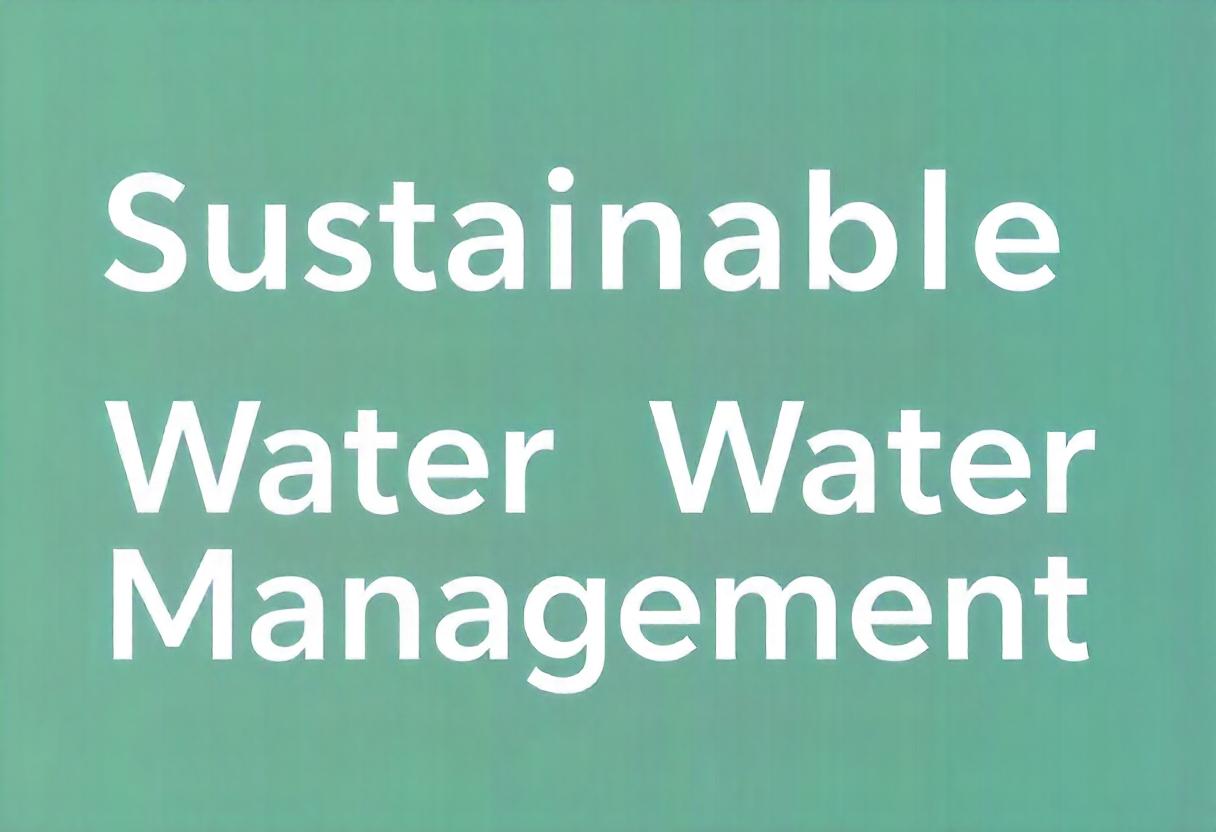
Understanding Sustainable Water Management
Sustainable water management involves the strategic use and conservation of water resources to ensure long-term availability and quality. It focuses on balancing the demands for water with the natural water cycle and environmental needs.
Key Principles of Sustainable Water Management
- Integrated Approach: This principle emphasizes the need to consider all aspects of water management, including supply, demand, and environmental impacts, within a unified framework. It promotes collaboration between various stakeholders and sectors.
- Water Efficiency: Enhancing water use efficiency involves reducing wastage and improving the effectiveness of water usage in various sectors such as agriculture, industry, and domestic use. This can be achieved through technology, better practices, and conservation strategies.
- Conservation and Preservation: Protecting natural water sources and ecosystems is essential for maintaining water quality and availability. Conservation efforts include protecting watersheds, reducing pollution, and restoring natural habitats.
- Economic Considerations: Sustainable water management also requires evaluating the economic implications of water use and management practices. This includes considering the costs of infrastructure, the economic benefits of efficient water use, and the impact of water-related policies on local and regional economies.
- Climate Change Adaptation: Addressing the impacts of climate change on water resources is crucial. This involves understanding how changing weather patterns and extreme events affect water availability and quality, and adapting management strategies accordingly.
Strategies for Implementing Sustainable Water Management
- Water Recycling and Reuse: Implementing systems for recycling and reusing water can significantly reduce demand on freshwater sources. This includes greywater recycling in households and industrial water reuse.
- Rainwater Harvesting: Collecting and storing rainwater for various uses, such as irrigation and non-potable applications, helps reduce reliance on traditional water sources and improves resilience to drought.
- Smart Water Technologies: Utilizing advanced technologies such as smart meters, sensors, and automated irrigation systems can improve water management efficiency and provide real-time data for better decision-making.
- Public Education and Engagement: Raising awareness about water conservation and involving the community in sustainable practices can lead to more effective water management. Educational programs and outreach initiatives help promote responsible water use.
- Policy and Regulation: Developing and enforcing policies and regulations that support sustainable water management practices is essential. This includes setting standards for water use, pollution control, and conservation measures.
Challenges in Sustainable Water Management
- Overexploitation of Resources: Excessive withdrawal of water from rivers, lakes, and aquifers can lead to depletion and degradation of water resources, affecting both human and ecological needs.
- Pollution: Contamination of water sources from agricultural runoff, industrial discharges, and improper waste disposal poses a significant challenge to maintaining water quality.
- Infrastructure Limitations: Inadequate or outdated infrastructure can hinder effective water management and distribution. Investing in modern infrastructure is crucial for improving water management practices.
- Population Growth: Increasing population and urbanization put additional pressure on water resources, necessitating more efficient management and conservation strategies.
- Climate Variability: Changes in climate patterns can lead to shifts in water availability and increase the frequency of extreme weather events, complicating water management efforts.